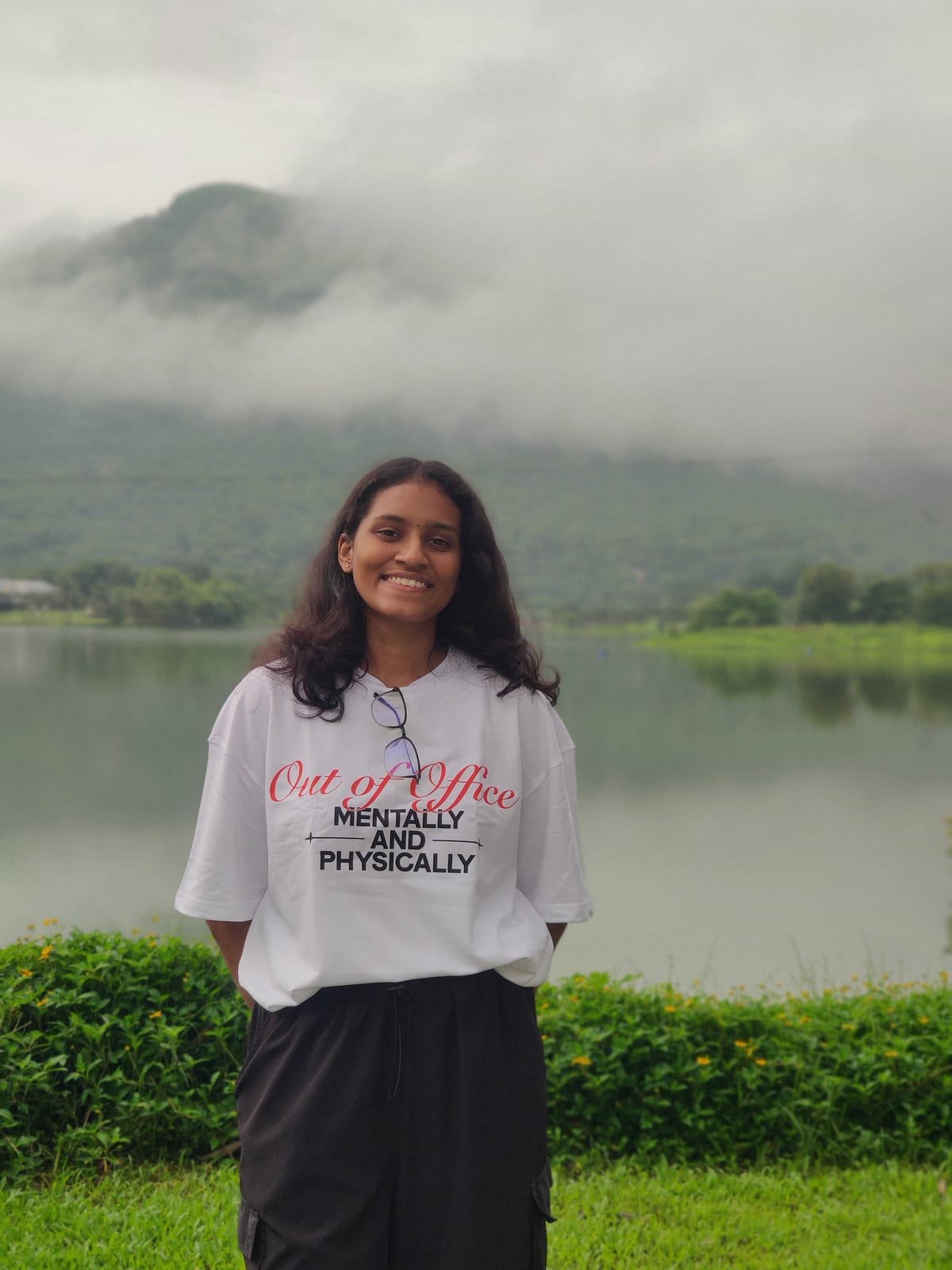The Exhausting Art of Fitting In. How I became everyone but myself | by Sanjana_kataru | Never Stop Writing | Jul, 2025

There I was, walking down the streets of Mumbai at 2 AM, surrounded by friends singing Hindi songs at the top of their lungs. Everyone was vibing, swaying, completely lost in the moment. Everyone except me. While they belted out lyrics they’d known since childhood, I found myself humming along to melodies I barely recognized, pretending to know words that felt foreign on my tongue.
That walk home became my moment of reckoning.
Being a South Indian surrounded by people who speak Hindi, I quickly learned that fitting in required a carefully choreographed performance. It started small, memorizing the hook steps of every trending Bollywood song so I wouldn’t be the awkward one standing still when the music started. Hours spent in front of my bedroom mirror, practicing moves I’d seen others do effortlessly, just so I could blend into the crowd at the next gathering.
The dance steps were just the beginning. Soon, I was cramming Hindi song lyrics like they were exam material, building a collection of “cool” songs I could reference in conversations. I wanted to be that person, the one other looked up to, the one who could instantly connect with any song that played. But the truth was different: whenever a South Indian song occasionally played, I felt a desperate longing. My whole body would relax into familiarity, and a genuine smile would spread across my face something that never happened with all those Hindi songs I had memorized.
I started acting drunk even though I never drank alcohol. I did this because it seemed like the only way people would include me in their conversations. Suddenly, I became the “fun drunk girl” and people would invite me to their plans and share their inside jokes with me.
Restaurant menus felt like tests I kept failing. While others easily ordered dishes with complicated names, I stuck to simple food I knew. I felt like someone who had never been to the city before. I was ashamed that I didn’t know what most things on the menu were, especially in places where I should have felt welcome.
When people talked about cool places to visit, trendy cafes, and weekend trips, I would nod like I knew what they meant. But inside, I was worried they would find out I knew nothing. I only knew the area where I lived but saying that out loud felt like admitting I wasn’t good enough.
The exhaustion is real. There’s a specific kind of tiredness that comes from constantly monitoring yourself your words, your reactions, your very presence in a room. It’s the fatigue of being perpetually “on,” of never allowing yourself the luxury of authentic response.
Every group conversation became a minefield. When topics arose that I knew nothing about, the pressure to nod knowingly, to contribute something — anything — that would prevent me from being labeled as the “weird one” was overwhelming. The fear of silence, of being exposed as someone who didn’t belong, drove me to perform knowledge I didn’t possess.
We live in an age where uniqueness should be celebrated, yet we’re more alike than ever. Social media has created a template for coolness, and we’re all trying to fit into the same mold. The result? A generation of people who know how to perform belonging but have forgotten how to actually belong to themselves.
The pressure to fit in has created a culture where:
- Not drinking at parties makes you weird
- Not knowing the latest trends makes you uncool
- Having different cultural references makes you an outsider
- Being authentic makes you vulnerable
- Embrace your cultural anchors: Play that South Indian song you love. Share your comfort food. Speak in the language that feels like home.
- Find your tribe: Seek out people who appreciate authenticity over performance. They exist, and they’re probably as tired of pretending as you are.
- Challenge the norm: Be the person who orders something simple at a fancy restaurant without shame. Be the one who admits they don’t know a song instead of pretending.
- Celebrate diverse experiences: Instead of expecting everyone to know the same references, create space for people to share their own.
- Redefine “cool”: Make authenticity the new standard. Make curiosity about others’ backgrounds the new social currency.
- Question peer pressure: Why do we assume someone who doesn’t drink is less fun?
When one person stops performing and starts being authentic, it creates permission for others to do the same. That friend who’s been pretending to love clubbing might finally admit they prefer deep conversations. The person who’s been nodding along to music discussions might share their own favorite artist.
The change starts with each of us. The next time you’re in a group and someone admits they don’t know something, celebrate that honesty instead of making them feel less than. When someone shares a cultural reference, you don’t understand, ask them to teach you instead of pretending you already know.
Create spaces where being different is an asset, not a liability. Where the South Indian girl can sing her songs, where the introvert doesn’t have to perform extroversion, where authenticity is the highest form of cool.
That night, walking home while my friends sang with abandon, something shifted. home isn’t about fitting into someone else’s song. It’s about finding the courage to sing your own, even if — especially if — you’re the only one who knows the words.
The most radical act in a world obsessed with conformity is to be genuinely, unapologetically yourself. Not the version you think others want to see, but the version that feels true when you’re alone in your room, when no one is watching, when you can finally stop performing.

